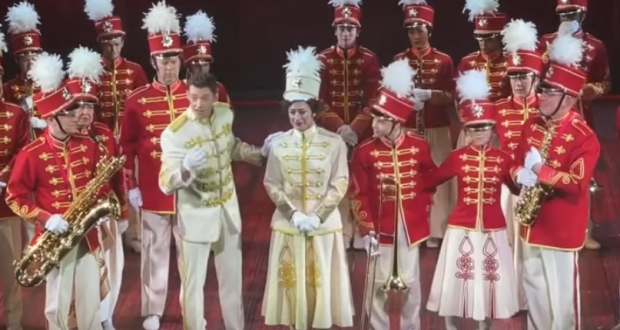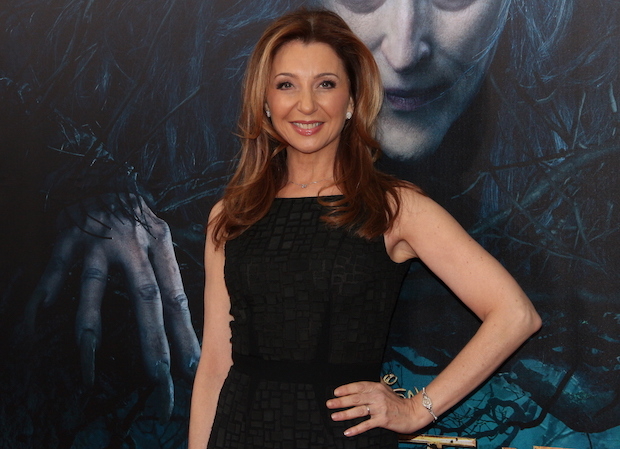Why You Should Celebrate That Understudy Slip in Your Theater Program
Cast members who temporarily step into roles offer audiences opportunities they may not have thought of.

(© YouTube)
It's no secret among the Broadway community that alternates, understudies, swings, and standbys are the unsung heroes of many a performance — and that has been especially apparent during the pandemic. Not only do they ensure that productions can continue when illness, vacations, or other disturbances leave a show without a cast member, but they are also hardworking, talented individuals in their own right.
For some people, those small slips of paper in your program or sliders on the cast board evoke a sense of sadness, especially if one has their heart set on seeing a specific main cast member in a role. That's an understandable disappointment, especially for out-of-towners. But for a certain group of theatergoers, catching a performance that features one or more of these incredible individuals is the equivalent of striking theatrical gold.
Admittedly, repeat attending is a habit of those with proximity to the theaters and the means to see a production on multiple occasions. Often, seeing the main cast is not the goal of those who go out of their way to see a production more than once. Here are a few reasons why some people, particularly repeat attenders, live for the moments of seeing a slip in their program or knowing an alternate or standby will be on that day.
1. The energy of the performance
Broadway actors generally have great attendance records, but life happens. In some cases, depending on the production's rules, it's possible that a cast member will announce their absence from the show for a particular evening, or someone will announce that they're playing a specific role at a particular performance. Whether it's a sudden announcement or a planned appearance, there is often a change in the air. Some of this energy invariably comes from the enthusiasm of the cast for their fellow castmate taking on a certain role, especially for the first time. This exhilaration is palpable, both onstage and in the house. You can often feel the energy and support flowing from the backstage crew to front of house staff as they proudly watch these actors step in and step up. When someone is anticipated, particularly in a lead role, friends and family often fly in for the performance, making audience reactions to the show full of joy, passion, and pride. Since the performers in these essential positions don't always know when or if they might be called to do a role again, their sincerity, joy, and excitement shines through every time.
2. New interpretations of a role
A joyful benefit of repeat attending and seeing different actors in roles is witnessing what they bring to the role. The beauty of live theater is that every performance is unique and that every audience has its own experience. When a performer is out, that performance becomes even more special. While the blocking for the shows is very carefully planned, performers have a certain amount of freedom in the role, whether they have played it once or dozens of times. What parts of the role will they play up? How does their presence impact the overall chemistry of the cast? What flair of their own do they bring? How are they going to deliver that iconic line? The appeal of seeing more than one take on the same role is an exciting prospect for passionate or curious fans of any show.

(© David Gordon)
3. The chance to see the future of Broadway
It's a story so triumphant that even Broadway couldn't resist making it into a show. Many theater fans are familiar with the fictional rise of Peggy Sawyer in 42nd Street — because witnessing someone getting their big break is the stuff of dreams. It is, in fact, the stuff of reality. Several household names started out as understudies, swings, standbys, and alternates. Recognize any of these actors? Taye Diggs, Sutton Foster, Jeremy Jordan, Jonathan Groff, Donna Murphy, and Bernadette Peters: They can be counted among those who got their starts in the world of covering roles. That understudy slip may be the start of a massive journey to stardom.
Take it from a chronic repeat attender who goes to shows specifically to watch different actors in multiple roles: They are, as Hugh Jackman recently called them after a performance of The Music Man, the bedrock of Broadway, the support system that keeps the theater district running, and they deserve more respect, accolades, and acclaim than we could ever offer.
So, the next time you see an understudy slip or a different name on the "at this performance board," try not to think of it as a missed opportunity but rather as a chance to see a rising star and a once-in-a-lifetime performance.










